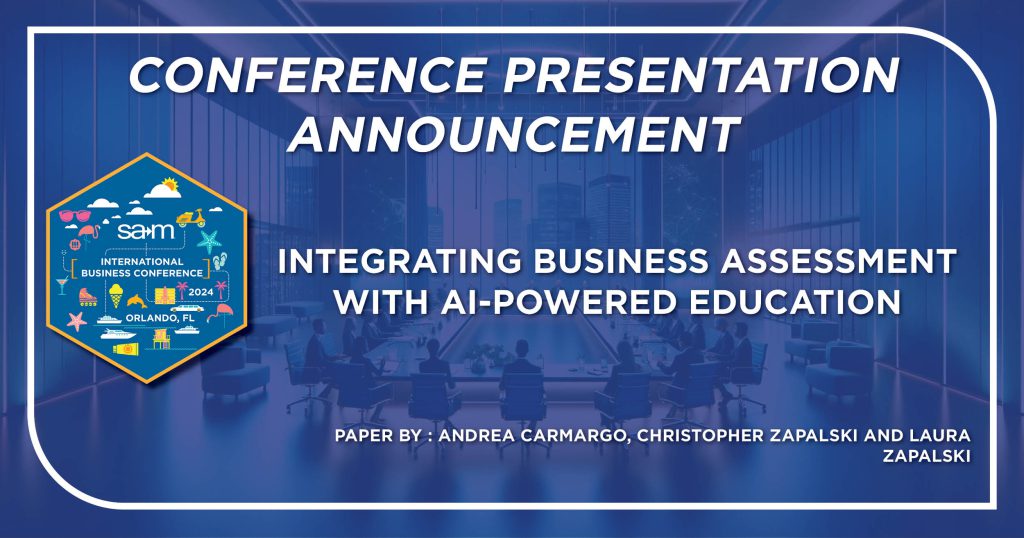
The programming committee for the 79th Annual SAM International Business Conference is pleased to announce the acceptance of the presentation, Integrating Business Assessment with AI-Powered Education by Andrea Carmargo, Christoher Zapalski, Laura Zapalski.
In an era where artificial intelligence (AI) is rapidly transforming the educational landscape, a groundbreaking paper has emerged, poised to be presented at the prestigious SAM International Business Conference. This paper delves into the critical intersection of traditional academic evaluation methods and the burgeoning influence of AI technologies in education, offering a nuanced exploration of their implications for university student performance.
The research underscores the enduring value of conventional assessments in providing accurate insights into student achievements while acknowledging the transformative potential of AI in enhancing personalized learning experiences. The delicate balance between these approaches is emphasized as crucial for preserving the quintessential human touch in education, ensuring that the ethical implementation of AI technologies is maintained. The paper argues for a harmonious integration of traditional assessment methods and AI-enhanced education, positing that such a blend is essential for crafting a comprehensive and effective educational approach.
Further, the paper sheds light on the significant role of class attendance in student performance, drawing on extensive investigations into the subject. Citing research by Diab-Bahma and studies involving accounting students by Teixeira, it highlights the clear correlation between regular attendance and improved academic outcomes. These findings illustrate the collective understanding among students and faculty of the importance of attending lectures, demonstrating that regular engagement with course material positively influences students’ comprehension and, consequently, their academic performance.
Despite the well-established connection between attendance and academic success, the paper identifies a notable research gap concerning the implications of AI’s advent in education. It points out the essential need for faculty adaptation to these technological advancements, particularly in the context of potential shifts away from traditional assignments and discussions susceptible to AI manipulation. The paper suggests moving towards more secure grading tools that AI cannot replicate, emphasizing the importance of preserving academic integrity in the face of evolving educational tools.
As this paper is set to be presented at the SAM International Business Conference, it signals a pivotal moment in the discourse on the integration of AI in education. It calls for a critical examination of how traditional and AI-based educational methods can coexist and complement each other, ensuring that the future of education remains both innovative and ethically grounded. This presentation is not merely an academic contribution but a clarion call for educators, technologists, and policymakers to navigate the complexities of integrating AI into education thoughtfully and responsibly.
Join us online or in person at SAMIBC 2024 and see this great presentation and many more March 19 – March 23, 2024. For registration information visit www.samnational.org/conference.
